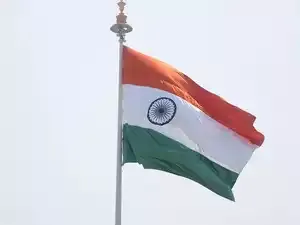India is keeping a close watch on the region along Afghanistan’s borders with Uzbekistan and Tajikistan amid reports of a resurgence of the radical Islamic Movement of Uzbekistan (IMU) following the change of guard in Syria that brought extremists to power, said people familiar with the matter.
Uzbekistan and Tajikistan are apprehensive about the growing influence of radicals having links with extremists in Syria and operating out of Afghanistan aiming to oust existing secular regimes in Central Asia.
Uzbek special forces recently held a meeting with the Taliban regime in Kabul to explore a roadmap to counter the IMU, which once maintained links with Al-Qaeda and its leader Osama Bin Laden, according to people in the know.
During the late-1990s to early 2000s, the IMU was the most potent radical group in Central Asia. It shifted its base to the Afghanistan-Pakistan region after a massive crackdown by then Uzbek President Islam Karimov. The IMU is listed by the UN and remains an outlawed organisation in Uzbekistan and across Eurasia. It was allegedly funded and aided by bin Laden, said the people.
The issue of the growing network of radicals and terrorists in Central Asia is expected to figure on the agenda of discussions between India and the visiting Shanghai Cooperation Organisation (SCO) secretary general Nurlan Yermekbayev in Delhi this week. Counterterrorism has been among the priorities of the SCO and its Tashkent-based Regional Anti-Terrorist Structure has been an effective body in countering terrorism in Eurasia. The resurgence of the IMU and growing network of radicals along Afghanistan’s borders with Central Asia has a direct impact on India’s security interests, said the people cited earlier.
The recent “success” of radicals and extremists in Syria has inspired Islamists in Central Asia, particularly Uzbekistan and Tajikistan, amid participation of certain Eurasian radicals in the Syrian theatre, according to experts on Central Asia. The IMU had maintained a presence in Tajikistan in the past and tried to make inroads into Kyrgyzstan. A faction of the IMU is also linked with ISIS.
Last month ET had reported that Saifiddin Tadjiboev, a native of Tajikistan, had joined as “colonel” in the Islamist-led Syrian Army and could emerge as the kingpin for terrorist activities in Central Asian states bordering Afghanistan. Tadjibaev’s appointment as Koid Amaliyat Fil-Livo, or chief of staff of the operations directorate of the defence ministry of the new Syrian government, had been welcomed by extremists from Tajikistan, Uzbekistan, Kyrgyzstan and Afghanistan, ET had reported.
Meanwhile, there are reports that a delegation from Pakistan’s Inter-Services Intelligence met anti-Taliban Afghan political figures such as Salahuddin Rabbani, Abdul Rashid Dostum, Abdul Rab Rasul Sayyaf and Mohammad Mohaqiq in Istanbul on Saturday amid fast deteriorating ties between Pakistan and Afghanistan.
Budget with ET
Tax calculator
Uzbek special forces recently held a meeting with the Taliban regime in Kabul to explore a roadmap to counter the IMU, which once maintained links with Al-Qaeda and its leader Osama Bin Laden, according to people in the know.
During the late-1990s to early 2000s, the IMU was the most potent radical group in Central Asia. It shifted its base to the Afghanistan-Pakistan region after a massive crackdown by then Uzbek President Islam Karimov. The IMU is listed by the UN and remains an outlawed organisation in Uzbekistan and across Eurasia. It was allegedly funded and aided by bin Laden, said the people.
The issue of the growing network of radicals and terrorists in Central Asia is expected to figure on the agenda of discussions between India and the visiting Shanghai Cooperation Organisation (SCO) secretary general Nurlan Yermekbayev in Delhi this week. Counterterrorism has been among the priorities of the SCO and its Tashkent-based Regional Anti-Terrorist Structure has been an effective body in countering terrorism in Eurasia. The resurgence of the IMU and growing network of radicals along Afghanistan’s borders with Central Asia has a direct impact on India’s security interests, said the people cited earlier.
The recent “success” of radicals and extremists in Syria has inspired Islamists in Central Asia, particularly Uzbekistan and Tajikistan, amid participation of certain Eurasian radicals in the Syrian theatre, according to experts on Central Asia. The IMU had maintained a presence in Tajikistan in the past and tried to make inroads into Kyrgyzstan. A faction of the IMU is also linked with ISIS.
Last month ET had reported that Saifiddin Tadjiboev, a native of Tajikistan, had joined as “colonel” in the Islamist-led Syrian Army and could emerge as the kingpin for terrorist activities in Central Asian states bordering Afghanistan. Tadjibaev’s appointment as Koid Amaliyat Fil-Livo, or chief of staff of the operations directorate of the defence ministry of the new Syrian government, had been welcomed by extremists from Tajikistan, Uzbekistan, Kyrgyzstan and Afghanistan, ET had reported.
Meanwhile, there are reports that a delegation from Pakistan’s Inter-Services Intelligence met anti-Taliban Afghan political figures such as Salahuddin Rabbani, Abdul Rashid Dostum, Abdul Rab Rasul Sayyaf and Mohammad Mohaqiq in Istanbul on Saturday amid fast deteriorating ties between Pakistan and Afghanistan.








